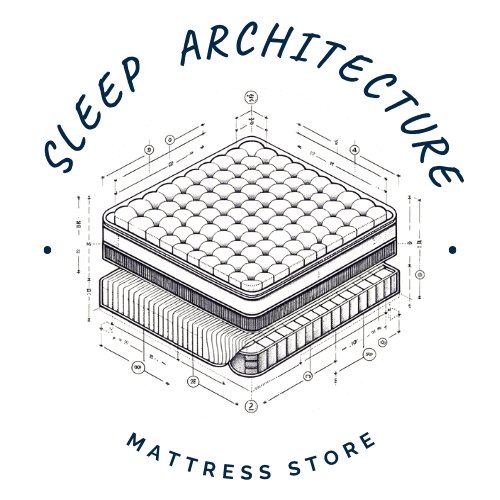
The Impact of Electronics on Sleep Quality: Why It's Time to Unplug

In today’s digital age, electronics are an integral part of our daily lives. From smartphones to tablets and televisions, these devices offer convenience, entertainment, and connectivity. However, when it comes to sleep, electronics can pose significant challenges, disrupting the restorative rest we all need. At Sleep Architecture Mattress Store, we know how important sleep is for overall health; understanding how electronics affect your nightly rest is the first step toward better sleep quality. Here’s some details on electronic device use before bedtime and the technology impact on sleep quality.
How Electronics Affect Sleep
1. Blue Light Exposure: Many of the devices we use—smartphones, tablets, computers, and even energy-efficient lighting—emit blue light. While blue light is beneficial during the day, helping boost attention and mood, it becomes problematic at night. The light from screens mimics daylight, which tricks your brain into thinking it’s still daytime. This disrupts your body’s natural production of melatonin, the hormone responsible for regulating sleep cycles.
Reduced melatonin levels can make it harder to fall asleep and decrease overall sleep quality, leading to restlessness or frequent waking throughout the night.
2. Increased Alertness: Watching a high-intensity movie, scrolling through social media, or responding to emails before bed can overstimulate your mind. Electronic devices are designed to engage you—whether it’s through bright visuals, social interactions, or constant notifications. This stimulation increases mental alertness, making it more difficult to relax and wind down for sleep.
3. Delayed Sleep Onset: Using electronics close to bedtime often leads to delayed sleep onset. Research shows that individuals who spend more time in front of screens before bed take longer to fall asleep than those who engage in non-stimulating activities like reading a book. The more your brain is engaged, the longer it takes for your body to transition into sleep mode.
4. Interrupted Sleep Cycles: Even if you manage to fall asleep with your phone in hand, the effects of electronics don’t stop there. Frequent notifications or vibrations can wake you up in the middle of the night, disrupting the natural progression of your sleep cycle. Interrupted sleep leads to less time spent in deep sleep, the most restorative phase, leaving you groggy and fatigued the next day.
Long-Term Effects of Poor Sleep Quality
Poor sleep quality caused by excessive use of electronics has serious long-term implications. Chronic sleep deprivation can contribute to a range of health issues, including:
· Increased stress and anxiety: Lack of sleep can heighten the body’s stress response, leading to irritability, anxiety, and difficulty focusing.
· Weakened immune system: Sleep is crucial for immune system function, and poor sleep can make you more susceptible to illness.
· Weight gain and metabolic issues: Inadequate sleep can affect the hormones that regulate hunger, leading to overeating and weight gain.
· Cardiovascular issues: Over time, insufficient sleep increases the risk of heart disease, high blood pressure, and other cardiovascular conditions.
Tips for Reducing the Impact of Electronics on Sleep
· Establish a digital curfew: Set a specific time to unplug each evening, ideally one to two hours before bedtime. Use this time to unwind with relaxing, non-digital activities.
· Use blue light filters: Many devices now have built-in blue light filters or night mode settings. Activating these in the evening can help reduce the disruptive impact of blue light on your sleep.
· Create a tech-free sleep environment: Keep electronics like phones, tablets, and laptops out of the bedroom. This helps to create a sleep-friendly space that promotes rest and relaxation.
· Read a book or practice relaxation techniques: Instead of watching TV or scrolling through your phone, try reading a book, practicing deep breathing exercises, or engaging in meditation to prepare your body for sleep.
· Invest in a quality mattress: Your sleep environment plays a crucial role in sleep quality. A supportive mattress, tailored to your comfort needs, ensures you wake up feeling rested and refreshed.
Conclusion
While electronics have become a necessary part of our daily routine, it's essential to recognize their impact on sleep. By creating healthier nighttime habits and choosing a tech-free wind-down routine, you can improve your sleep quality, waking up more energized and ready to take on the day. At Sleep Architecture Mattress Store, we are committed to helping you achieve the best sleep possible—starting with the right mattress and a more mindful approach to bedtime.
(Image Courtesy Sleep Foundation)
Send a Message
At Sleep Architecture, we value your feedback and insights. Whether you have questions about our products, want to share your experience, or are ready to book a consultation, we're here to help. Leave a comment, ask a question, or book an appointment today. Your input helps us continue to provide the best possible service to our valued customers. Let's start the conversation!
Contact Us
Give us a call
(330) 954-8007Send us an email
[email protected]